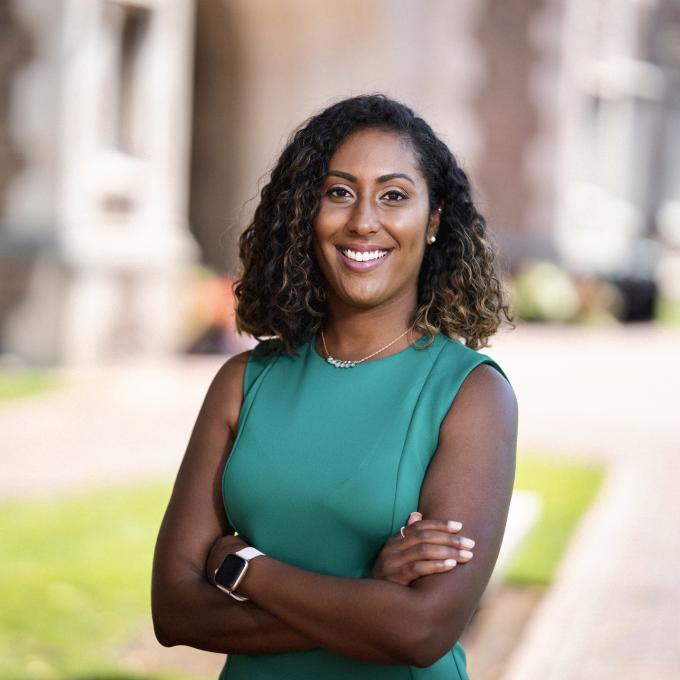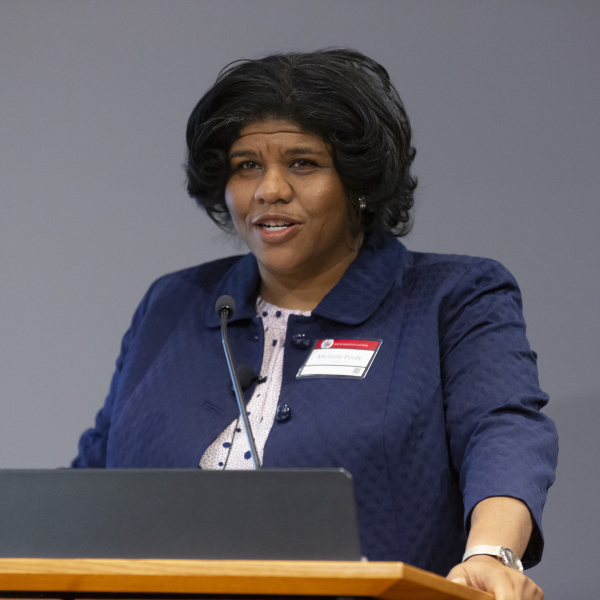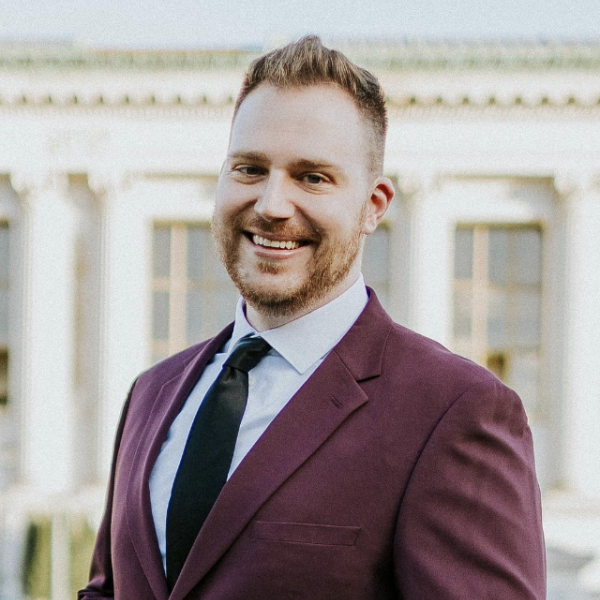Raven Maragh-Lloyd’s research demonstrates the role that Black humor plays in creating digital spaces for critiquing racism.

In 2018, a white woman called the police on a young Black girl named Jordan Rodgers who was selling water bottles on a sidewalk without a permit. Black Twitter users started calling the woman “Permit Patty” and eventually extended the name to refer to other white women who were policing the behavior of Black and brown people, children especially.
Although the moniker arose and went viral in the age of Twitter, the concept behind it was not new, said Raven Maragh-Lloyd, assistant professor of African and African American studies. Maragh-Lloyd joined WashU in 2021 as part of Arts & Sciences' Digital Transformation Initiative.
Permit Patty memes harken back to the character of “Miss Ann,” an expression used in the African American community in reference to an arrogant white woman. “In the 60s and 70s, when many Black women were maids in white women’s homes, we couldn’t say our employer’s name to critique her,” said Maragh-Lloyd. “We had to come up with code names because to call out a white woman means violence in a lot of instances.”
“As a system, the U.S. has protected an idea of white womanhood as representative of purity and civilization that comes at the expense of Black people,” said Maragh-Lloyd. “Through memes of characters like Permit Patty, Black creativity online makes the systemic idea of white womanhood visible.”
Memes about Permit Patty and Karens often reach beyond their original context as subversions of tropes of white womanhood on Black Twitter, spreading to other social media platforms and audiences. In a new study, Maragh-Lloyd finds that these memes show a form of Black humor that functions as resistance even when it is not coded as activism.
“Memes are a form of nontraditional activism. You don’t need to tag a political movement for the meme to have political impact.”
“Memes are a form of nontraditional activism. You don’t need to tag a political movement for the meme to have political impact,” Maragh-Lloyd explained.
For her study, Maragh-Lloyd collected a sample of 1,000 tweets and Instagram posts using the hashtags #Karen and #PermitPatty between June and September 2020. She found that, by playing with languages and narrative techniques, Black users called attention to the ways that white womanhood as a system relied on the police state to impose order on Black bodies, particularly those of children. By creating stereotypes of white women, they were able to retell the story of their relationship to white women and police action in a way that places them at the center of the narrative as humorous commentators, reframing stories of violence by ridiculing structures of power.
Humor, play, and memes provide a way of creating community online, especially when calling out racist behavior in real life can be dangerous. As an undergrad, Maragh-Lloyd was active on Black Twitter, an experience that has influenced her own research into digital forms of resistance and activism.
“When a professor would say something racist or another student would ask to touch my hair, I could turn to Black Twitter and all of sudden I could connect with other Black audiences across campus and the country,” she said. “There were other Black students on campus, but they weren’t always in the classroom. That collapsing of time and space and community on Black Twitter transformed my undergraduate experience and has been hugely impactful on my research.”
Maragh-Lloyd’s research into the Permit Patty is part of her larger project exploring modes of Black resistance online. Through focus groups, she has spoken with over 40 Black women who use social media to question racist ideas in the workplace in similarly nontraditional activist ways. “Some women make their personal social media profile picture one with their natural hair because their bosses follow them on Facebook and had told them to wear their hair straight in the office.”
Because of experiences like this, Maragh-Lloyd believes the ways that Black folks move online that are not coded as activism deserve more visibility.
“It’s not just happening on Black Twitter. If you look at the impact of Black dancers on TikTok, it’s clear that we influence the culture quite a bit. That’s where resistance comes through for me. It’s like our communication does something.”




